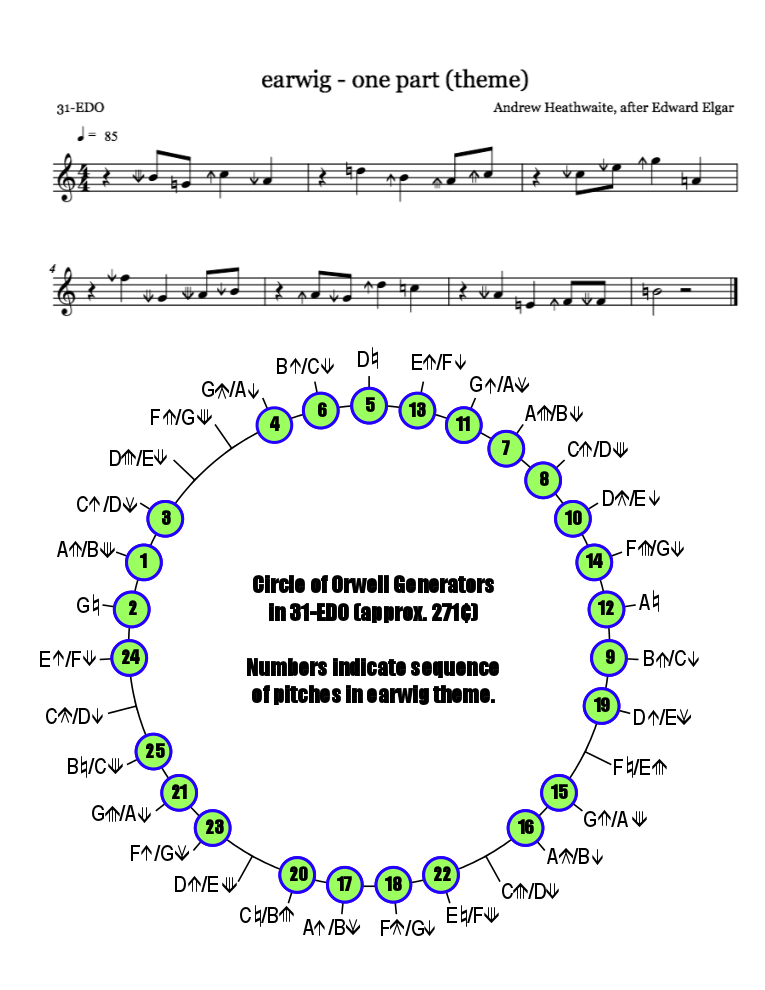Earwig
Earwig is a piece by Andrew Heathwaite created in response to a composition assignment given by Chris Vaisvil on the Xenharmonic Alliance II Facebook Group in December 2012. The assignment was to transcribe the Enigma Theme by Edward Elgar into a xenharmonic tuning of the composer's choice, then to create three additional variations with 2-, 3-, and 4-part polyphony. In 31edo, I opted to create a tone-row of sorts by following a don't-repeat-any-pitches rule. Since there are 25 notes in the original melody, there are 25 distinct pitches in the transform. I selected the pitches by referring to the Orwell generator chain (see below), generally keeping adjacent pitches of the melody not too far away from each other in the circle. The overall movement is clockwise around the circle, eventually ending quite close to wear it started.
The idea with the other three variations was to apply a different rhythmic transform to the theme. The lengths of the sections thus correspond to the level of time-stretching or -compressing applied to the theme. For example, the third variation stretches out the theme almost beyond recognition, and is the longest. Pitch selection was largely free and intuitive, but I did try to emphasize certain chords or dyads here and there, and of course I was interested in a complex weaving of lines. The fourth variation sticks the closest to the Orwell generator chain and is constantly modulating through the Orwell circle in a similar way to the melody itself.
Note that the note-naming system here is standard for 31-EDO (in this case with Sagittal accidentals), and is based on meantone temperament. Thus, the particular relationships of Orwell are somewhat obscured. If different tunings of Orwell were desired (22edo or 53edo for instance), new scores would have to be produced. However, this piece was conceived in 31-equal. The circularity of the theme through the Orwell generator chain requires that 31 Orwell generators get you to the octave.
Listen to the piece here. Scores for the four sections are below.
